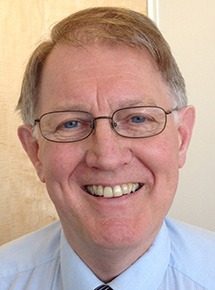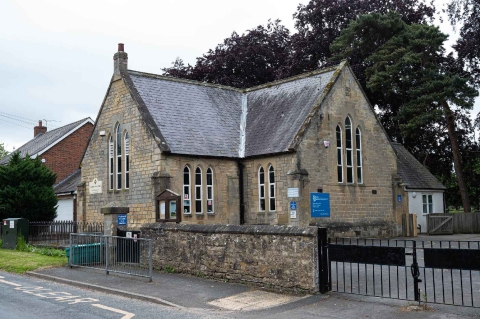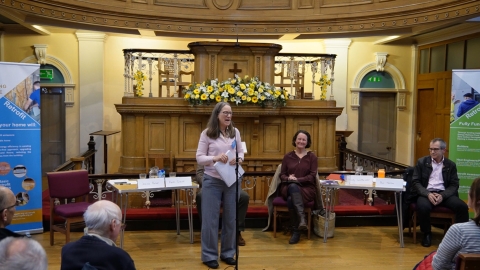The Chief Inspector of hospitals, Professor Sir Mike Richards is bringing in radical changes to the way the Care Quality Commision (CCQ) inspect hospitals and is introducing the changes to 18 NHS trusts by the end of next month – Harrogate is one of those trusts.

The CQC inspectors will begin an inspection at Harrogate District Hospital next Thursday, 14 November 2013.
The new Chief Inspector of Hospitals sends his team of inspectors into Harrogate District Hospital next week.
To ensure the views of patients and the local community are properly heard, the inspectors will be holding a listening event. Gaining the views of is a key element of the inspection.
Thursday 14 November 2013, 6.30pm
Best Western Cedar Court, Park Parade, Harrogate, North Yorkshire, HG1 5AH
Members of the public are being encouraged to attend the listening event to find out more about the inspection process, to tell the team about their experiences of care and to say where they would like to see improvements made in the future.
Professor Sir Mike Richards speaking ahead the inspection:
Why do we need these inspections? Shouldn’t everyone just get good care?
When we go into hospital, we should all expect to get safe, good quality and compassionate care. Sadly, this doesn’t always happen.
Hospitals are complex places where people often go on a journey – you can be admitted through the accident and emergency department and then travel through the hospital and experience a variety of different services along the way. Sometimes one part of a hospital can deliver great care and another part poor care.
These inspections will help give an overall picture of the care local people can hope to receive from their hospital.
How has the system changed?
Before, we’d often inspect small parts of a hospital at a time over one or two days – and this would often be based on risk, So, for example, if we’d been told that people were not receiving adequate food and drink in the accident and emergency department at Harrogate District Hospital, we’d have looked specifically at that kind of issue.
Now, we’ll be taking bigger teams into hospitals over a longer period of time, and we’ll be asking five key questions; about safety, effectiveness, responsiveness, compassion and leadership.
These changes are radical – but I believe it’s the best way to check that local hospitals are providing people with good quality care and treatment which meets their needs and keeps them safe.
So who will your teams be?
My teams will be led by senior NHS doctors and nurses or executives working alongside senior CQC inspectors, and will include professional and clinical staff and other experts, including trained members of the public who we call experts by experience.
These will be big teams – around 20 people in total in most cases – which will spend up to five days on site in a mixture of announced and unannounced inspections at different times of the day and night. We believe that this is a great way to get underneath the surface of a hospital and identify where the pockets of good and bad practice may be.
How will you know what to look at?
We’re looking at a variety of data on Harrogate District Hospital and the wider trust, but I’m also asking the people who know best – your readers, local people who have been treated at the hospital – to tell me about their experiences. This is an incredibly powerful source of information for us, as we get to understand what people experience day in and day out – and when there isn’t an inspector in the room.
What is your hope for these new inspections?
I am determined that each inspection will provide the public with a clear picture of the quality of care in their local hospital, exposing poor and mediocre care and highlighting good and excellent care. As part of that, my team and I will decide whether hospitals are rated as outstanding; good; requiring improvement; or inadequate.
If a hospital requires improvement or is inadequate, I will expect it to improve – and it will be forced to improve. Where there are problems, my team will work with Monitor, NHS England and the Trust Development Authority (TDA) to make sure that a clear programme is put in place to deal with these problems and hold people to account.
So what does that mean for local people in the local area?
Well, it means that they’ll be able to access a much wider range of information about their local hospital – and I’d encourage everyone reading this to tell us about the care that they, or a friend or relative, has experienced.
For every bad news story, there are examples of great, safe, effective and compassionate care of which our hospitals can be rightly proud. What hospitals with issues need to do is learn from the hospitals that consistently deliver good care – that way everyone should get the care and treatment they are entitled to.
Do you have a message for our readers?
I hope that all your readers will take the opportunity to tell us about the care they’ve experienced – either by attending the listening event on 14th November at the Best Western Cedar Court, Park Parade, Harrogate, North Yorkshire, HG1 5AH at 6.30pm
What your readers tell us will play a vital role in telling us where we may need to look more deeply at the hospital and the wider trust – and I’d urge them to take that opportunity to tell us about their care.






